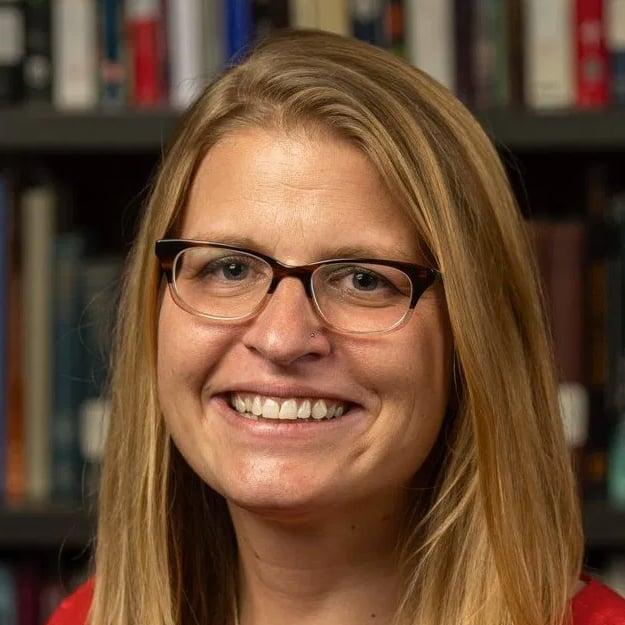Rebecca Barnes

Rebecca (Becca) Barnes is a biogeochemist and ecosystem ecologist who is interested in understanding how aquatic and terrestrial ecosystems process and export nitrogen and carbon. She is particularly interested in understanding how disturbance and global change drivers (e.g. nitrogen deposition, land use change, and warming) affect ecosystem function. Becca received her Bachelor’s in Geology from Oberlin College, a Master’s of Science in Environmental Science and a Master’s of Public Affairs from Indiana University’s School of Public & Environmental Affairs, and her PhD in Forestry and Environmental Studies from Yale University.
Becca utilizes concepts and methods from the fields of geochemistry and ecosystem science to understand the complex biogeochemistry of human impacted watersheds – specifically how do terrestrial and aquatic ecosystems process carbon and nitrogen? For example: How are alpine watersheds responding to incoming N deposition and warming conditions? What is the impact of thawing permafrost and melting glaciers on N loading? How does disturbance (e.g. agriculture, urbanization, fire) alter the lateral flux of carbon to nearby streams and what is the fate of this carbon? Is it utilized by microbes within the stream? broken down by incoming UV light? or exported unaltered to downstream ecosystems?
By conducting research to understand the ecosystem function today, she can make predictions of how it will respond to future perturbations. In order to do this, Becca conducts research in a collaborative, multi-scale, and interdisciplinary way; acknowledging that in order to understand the ecological impacts of global change we need to examine not only ecosystem drivers such as changes in temperature and hydrologic cycling but also policy decisions and cultural perceptions of the environment.
For more information about Becca’s ongoing work please visit her website.
Rebecca (Becca) Barnes is a biogeochemist and ecosystem ecologist who is interested in understanding how aquatic and terrestrial ecosystems process and export nitrogen and carbon. She is particularly interested in understanding how disturbance and global change drivers (e.g. nitrogen deposition, land use change, and warming) affect ecosystem function. Becca received her Bachelor’s in Geology from Oberlin College, a Master’s of Science in Environmental Science and a Master’s of Public Affairs from Indiana University’s School of Public & Environmental Affairs, and her PhD in Forestry and Environmental Studies from Yale University.
Becca utilizes concepts and methods from the fields of geochemistry and ecosystem science to understand the complex biogeochemistry of human impacted watersheds – specifically how do terrestrial and aquatic ecosystems process carbon and nitrogen? For example: How are alpine watersheds responding to incoming N deposition and warming conditions? What is the impact of thawing permafrost and melting glaciers on N loading? How does disturbance (e.g. agriculture, urbanization, fire) alter the lateral flux of carbon to nearby streams and what is the fate of this carbon? Is it utilized by microbes within the stream? broken down by incoming UV light? or exported unaltered to downstream ecosystems?
By conducting research to understand the ecosystem function today, she can make predictions of how it will respond to future perturbations. In order to do this, Becca conducts research in a collaborative, multi-scale, and interdisciplinary way; acknowledging that in order to understand the ecological impacts of global change we need to examine not only ecosystem drivers such as changes in temperature and hydrologic cycling but also policy decisions and cultural perceptions of the environment.
For more information about Becca’s ongoing work please visit her website.
